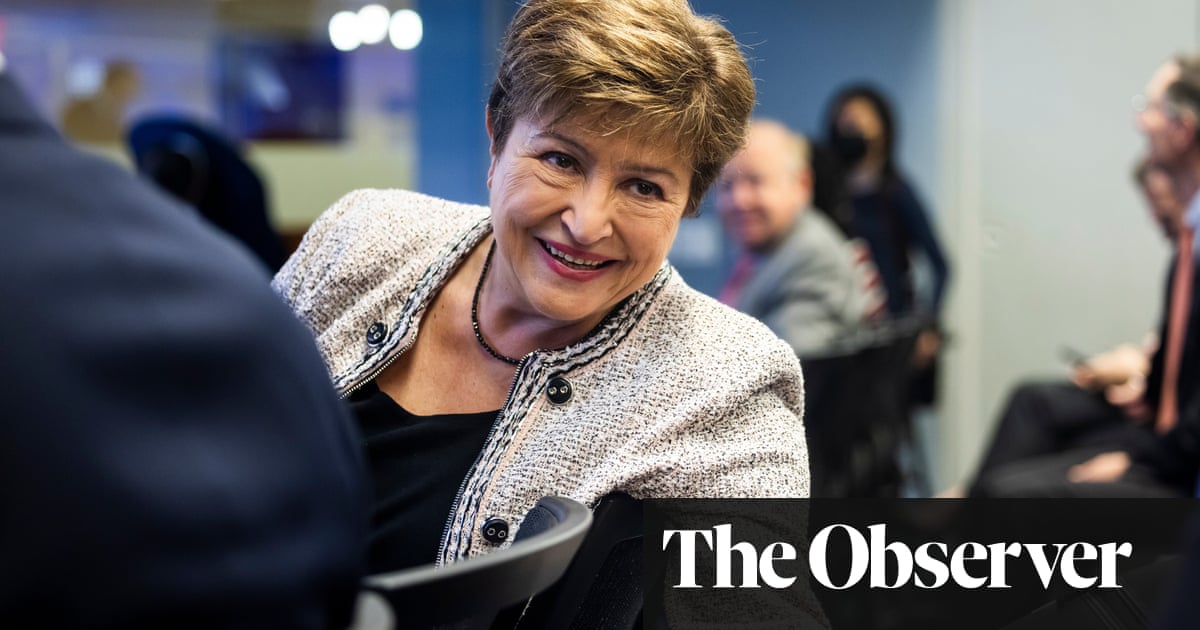There is likely to be a sense of relief when the International Monetary Fund and the World Bank hold their half-yearly meetings in Washington this week. Not because the world is crisis-free – it clearly isn’t – but because since they met six months ago no fresh crisis has emerged.
The past half-decade has been as tough as any period in the history of the two organisations. First there was the pandemic, then the surge in inflation as lockdown restrictions were lifted. The cost of living problems were amplified by the war in Ukraine. Then, last October, two days before the start of the IMF/World Bank meetings in Marrakech – and just as things appeared to be calming down – Hamas launched its attack on Israel.
After five years of turmoil, neither Kristalina Georgieva, the IMF’s managing director, nor World Bank president Ajay Banga would be foolish enough to rule out a fresh, unexpected setback. The war between Israel and Hamas could suddenly explode into a wider Middle East conflict. But even assuming that a degree of normality has returned, there are five challenges ahead.
The first is that the economic recovery is patchy and fragile. In the developed world, the US is growing strongly but the eurozone is struggling. China is slowing down and there are concerns about its debt-driven growth model. Policy mistakes – especially by central banks – can certainly not be ruled out.
As Georgieva said in her curtain-raising speech last week: “The sobering reality is global activity is weak by historical standards and prospects for growth have been slowing since the global financial crisis. Inflation is not fully defeated. Fiscal buffers have been depleted. And debt is up, posing a major challenge to public finances in many countries.”
The second challenge is the scars left by what the World Bank has called the weakest half-decade of growth since the early 1990s. These scars are especially livid in the poorer parts of the globe, where countries have been beset by slower growth, rising prices for imported food, and heavier debt burdens as global interest rates have increased.
Banga is pressing richer countries to dig deep to replenish the International Development Association, the World Bank fund that provides grants and concessional loans to poor countries. It needs a record amount of fresh money to cope with demands for its assistance.
Third come the issues which were pressing in 2019 but were put to one side during the rolling crisis of the past five years. Action to tackle the prolonged period of weak productivity since the 2008 financial crisis is one; the fight against global heating is another.
The fourth challenge comes in the form of more recent arising issues. The IMF has been alarmed by rising protectionism, manifested in the increased use of industrial policy. It is also uneasy about deglobalisation and has yet to recognise that the austerity policies it has supported for decades have proved a failure. Similarly, it has yet to make up its mind whether AI is a threat, an opportunity or a bit of both.
Finally, there is the question of what happens to the IMF and World Bank themselves, because times have moved on since delegates from 44 countries gathered in Bretton Woods, New Hampshire, to give birth to two new global institutions in July 1944.
Allied troops had landed on the beaches of Normandy less than a month before that conference began. The climate crisis was not a thing. And the US accounted for about half of global output.
Yet the governance structure of the two institutions still reflects the world of 80 years ago. The US chooses every World Bank president, while Europe gets to pick the IMF’s managing director. Banga will this week tell how he intends to make the bank a more ambitious and speedier organisation. A more fundamental question is whether the two institutions are actually fit for purpose.







